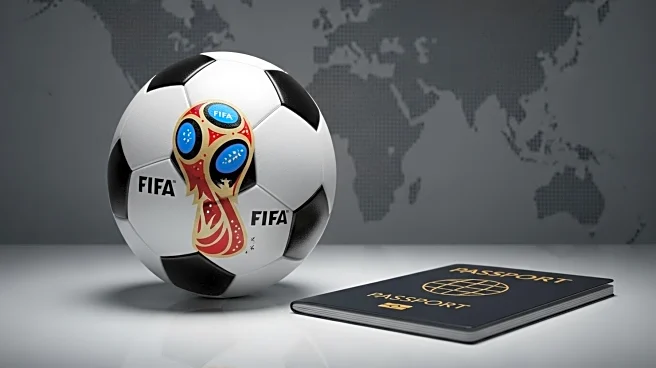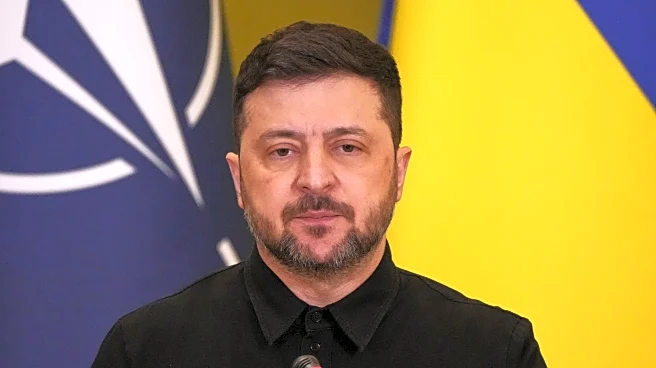What is the story about?
What's Happening?
Tickets for the FIFA World Cup 2026, hosted by the U.S., Canada, and Mexico, have officially gone on sale. This follows a lottery selection process where 4.5 million applicants vied for the opportunity to purchase tickets. The tournament, set to run from June 11 to July 19, 2026, will feature matches across 16 venues in North America. Despite uncertainties regarding match schedules and visa requirements due to U.S. immigration policies, demand remains high. FIFA President Gianni Infantino highlighted the global interest, noting applications from 216 countries. Ticket prices range from $60 for group-stage matches to $6,730 for the final, with dynamic pricing expected to adjust these figures.
Why It's Important?
The sale of World Cup tickets is a significant event, reflecting the global appeal of soccer and its potential economic impact on host nations. The U.S., Canada, and Mexico stand to benefit from increased tourism and international exposure. However, the U.S.'s current immigration crackdown could deter overseas visitors, affecting attendance and economic gains. Political dynamics, including President Trump's influence on host city selections, add layers of complexity to the event's planning and execution. The tournament's success could bolster the reputation of North American soccer and influence future international sporting events.
What's Next?
As ticket sales progress, FIFA plans additional phases for ticket distribution, including an early ticket draw and a random selection draw. The final draw on December 5 will determine the match schedule, further clarifying travel and visa requirements for international fans. Host cities are preparing for potential changes in venue assignments, influenced by safety assessments and political decisions. The U.S. State Department is prioritizing security and efficient visa processing to facilitate international attendance. Stakeholders, including airlines and sponsors like Verizon, are offering promotions to enhance fan engagement.
Beyond the Headlines
The World Cup's role in uniting diverse cultures through sport will be tested amid geopolitical tensions and immigration policies. The event could serve as a platform for diplomatic engagement and cultural exchange, highlighting soccer's unifying power. Long-term, successful execution of the tournament may influence future bids for international events, showcasing North America's capability to host large-scale global gatherings.
















